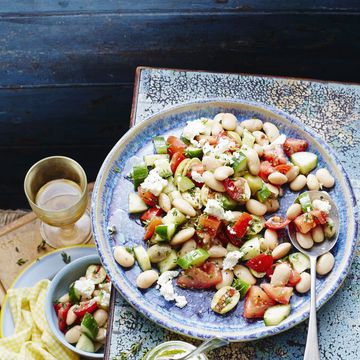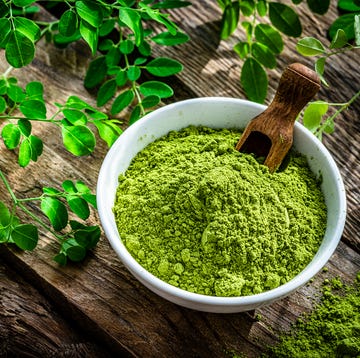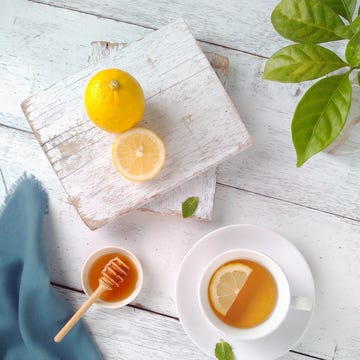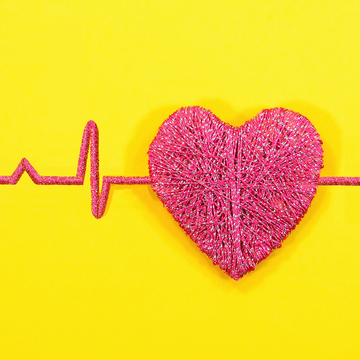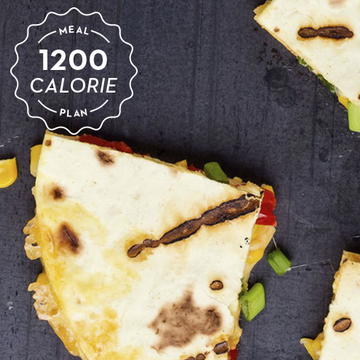1Peas
 Aniko Hobel//Getty Images
Aniko Hobel//Getty ImagesThese are tiny nutritional powerhouses, with one cup of peas delivering nearly 8 grams of protein. “You can find pastas and even rice made from peas, which are a great plant-based protein base for any dish,” says Sassos. “Many vegan protein powders are made of peas as well.” Besides protein, peas are also rich in antioxidants such as vitamin C, are a good source of fiber and provide some iron.
2Spinach
 Westend61//Getty Images
Westend61//Getty ImagesHere’s a pro hack when it comes to squeezing the most nutrition out of spinach: Cook it. “One cup of cooked spinach provides a whopping 5 grams of protein per cup — less volume means more protein,” says Taub-Dix. Spinach also contains iron, calcium and vitamins A, C and K. Fresh, uncooked spinach still contributes a little bit of protein, but not as significant an amount as when it’s cooked. Add spinach to any meal of the day — it’s great in eggs or a smoothie for a protein-rich breakfast, as the base for a salad, grain bowl or wrap at lunch and tossed with pasta or in soups and stews and curries for dinner.
Advertisement - Continue Reading Below
3Sweet Potato
 clubfoto//Getty Images
clubfoto//Getty Images 4Mushrooms
 alvarez//Getty Images
alvarez//Getty ImagesYou’ll enjoy about 3 grams of protein per cup of cooked mushrooms — talk about a delicious, umami way to pad your intake for the day! Plus, they also deliver immunity must-have selenium, as well as B-vitamins and potassium. “Mushrooms are a blank canvas, so you can add chopped mushrooms to ground meat or turkey or tofu to save you some money while also boosting plant power,” suggests Taub-Dix.
Advertisement - Continue Reading Below
5Corn
 Maria Korneeva//Getty Images
Maria Korneeva//Getty Images“Corn is often pushed aside because it’s known as a ‘starchy vegetable,’ but those sweet, crunchy kernels supply 5 grams of protein per cup cooked,” Taub-Dix says. “And, besides adding a beautiful yellow color to your dish, corn also gives you fiber (which most of us don’t get enough of) along with B vitamins.” Corn is delicious all on its own, but also consider tossing some in polenta, cornmeal pancakes or with beans.
6Beans
 MEDITERRANEAN//Getty Images
MEDITERRANEAN//Getty ImagesSpeaking of beans, did you know that these plant-based staples pull triple-duty when it comes to food groups? “Beans and other legumes are like the chameleons of the food pyramid — they can seamlessly fit into the protein group, the carbohydrate/bread group and the vegetable group,” says Taub-Dix. Protein content varies slightly between the different variations, but some superstars include: black beans (15 grams per cup), chickpeas (14.5 grams per cup), kidney beans (13 grams per cup) and lentils (18 grams per cup). Dump a couple cans of beans into a food storage container and keep it in your fridge for easy access all week, or cook up a batch of dried beans and freeze them in individual servings. Crunchy roasted beans also make a good protein-filled snack.
Advertisement - Continue Reading Below
7Broccoli
 fcafotodigital//Getty Images
fcafotodigital//Getty ImagesOne cup of raw broccoli contributes about 3 grams of protein, so cook it to increase the amount you’ll get in the same serving size. Get creative with how you use this cruciferous veggies — besides fitting naturally into a stir-fry, roasted as a side or in an omelet, you can also chop it up very small and mix it with rice or another grain.
8Artichoke
 carlosgaw//Getty Images
carlosgaw//Getty ImagesWhether you like to scrape off the yummy flesh of a roasted artichoke with your teeth, or prefer it as a salad topping or pasta stir-in, this springtime veggie delivers about 5 grams of protein per cup cooked. It’s also an excellent source of fiber, so it’ll help stabilize blood sugar levels for steady energy and keep you full for longer.
Advertisement - Continue Reading Below
9Brussels Sprouts
 Cavan Images//Getty Images
Cavan Images//Getty ImagesA cup of cooked Brussels nabs you around 4 grams of protein, plus plenty of fiber and vitamins C and K, says Taub-Dix. Halving and roasting or air-frying isn’t the only way to enjoy this nutrient-dense veggie — you can also peel off each little leaf or finely shred it to add to your salad mix, slaw or a wrap.
10Edamame
 Daniel Hurst Photography//Getty Images
Daniel Hurst Photography//Getty ImagesThis is a unique plant-based protein because it’s a complete protein (meaning it provides all nine essential amino acids that our body needs but can’t produce on its own), which is “nearly an impossible task for a vegetable!” says Werner. Shelled edamame, which you can find in the frozen section, contributes about 12 grams of protein per 100 grams; buying it already de-podded makes it easy to throw on salads and grain bowls, and to mix with other veggies for a sneaky protein boost, Werner adds.
Advertisement - Continue Reading Below
Readers Also Read
Advertisement - Continue Reading Below
Advertisement - Continue Reading Below



